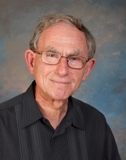 Author and lecturer Dr. Jay Kappraff will speak on the connection between the Parthenon and Ancient Vedic India, plants and planets, and the Golden Mean in design. This lecture will address three topics in which mathematics plays a role in uncovering hidden principles:
Author and lecturer Dr. Jay Kappraff will speak on the connection between the Parthenon and Ancient Vedic India, plants and planets, and the Golden Mean in design. This lecture will address three topics in which mathematics plays a role in uncovering hidden principles:
1) A possible connection of the proportions of the Parthenon to Vedic India. The proportions of the Parthenon will be shown to replicate the ancient Pentatonic and Heptatonic musical scales. It will be shown that certain dimensions within this great temple yield exact values for the solar and lunar years. Evidence has been found in the proportions of the Parthenon for a connection with ancient Vedic India.
2) The work of Lawrence Edwards on biorhythms in buds and an unexplained influence due to Planets. Buds of trees transform according to a 14 day cycle and a seven year cycle under the influence of the Moon and a particular planet depending on the nature of the bud.
3) Dr. Kappraff will conclude with a display of designs as the result of the golden mean created by students from his Mathematics of Design studio .
After obtaining degrees in Chemical Engineering, Dr. Kappraff worked briefly for Dupont and NASA. He then received his Doctorate in Mathematics at NYU-Courant Institute and began an academic career at Cooper Union and NJIT where he still teaches. His background is in applied Mathematics where he worked in the area of plasma physics. He then developed an interest in the Mathematics of Design and wrote two books in this area: Connections and Beyond Measure. Most recently he has been teaching mathematics at the School of Design at NJIT where he innovated a course in modern geometry and wrote the book, A participatory Approach to Modern Geometry. Over the course of his career, Dr. Kappraff has written more than five published papers. In 2004 he created a lecture series in Technology and Society and supervised the production of more than 80 talks on topics pertaining to technology; its promises and perils. In 2014, Dr. Kappraff created a music program at NJIT which now has three active musical ensembles rehearsing: a string ensemble, a wind ensemble and a big band jazz group involving about 100 students. At the end of the semester the ensembles perform for the school.
